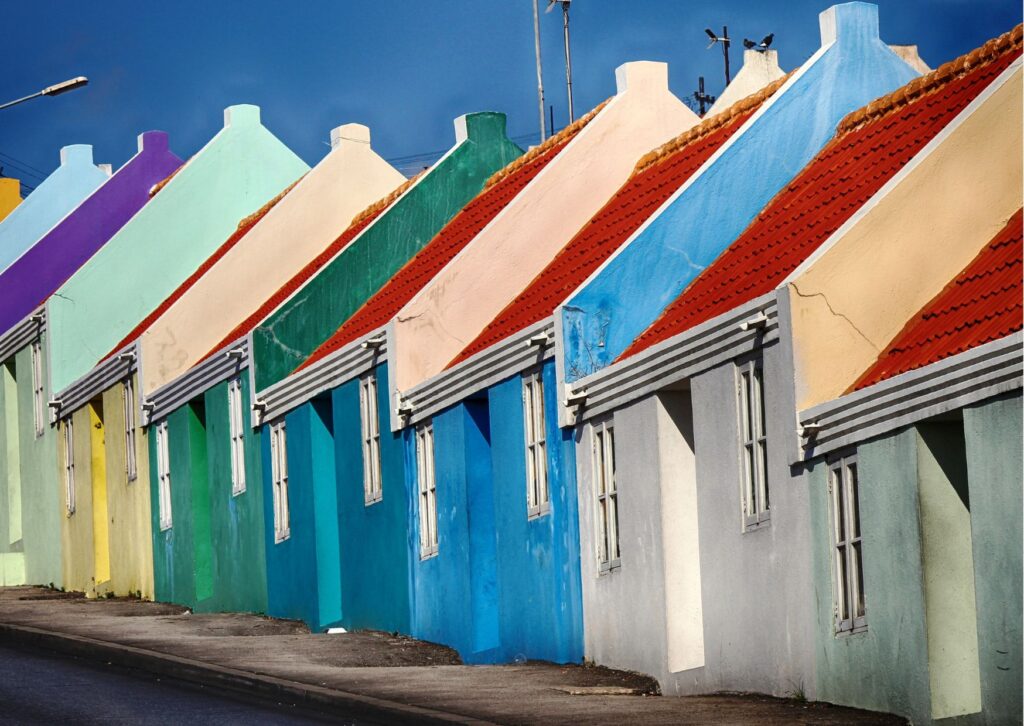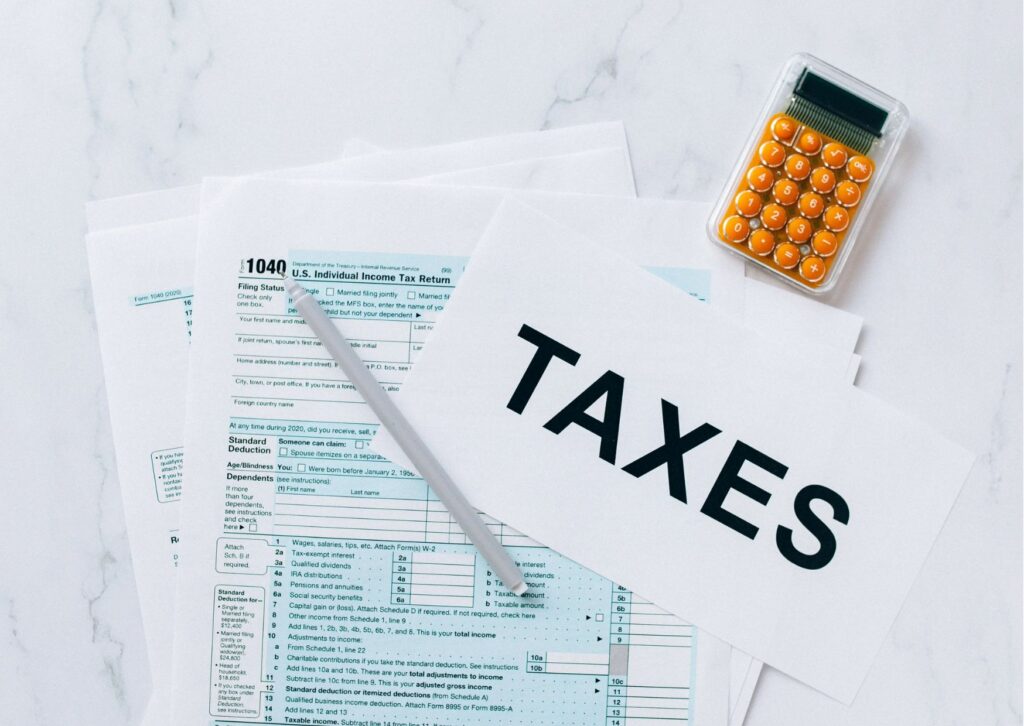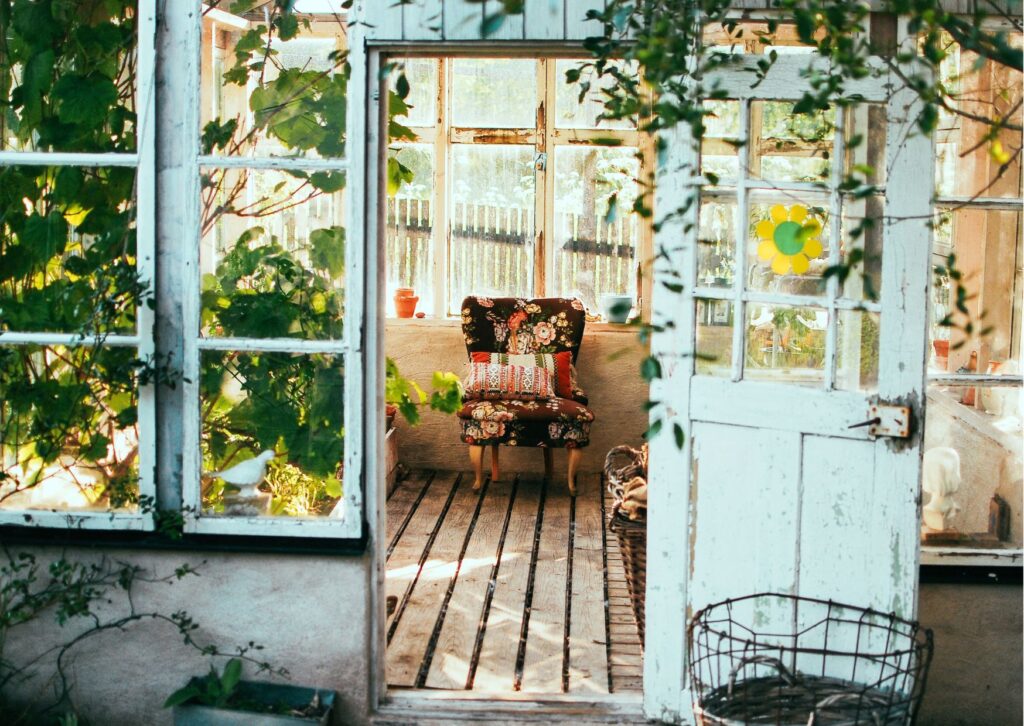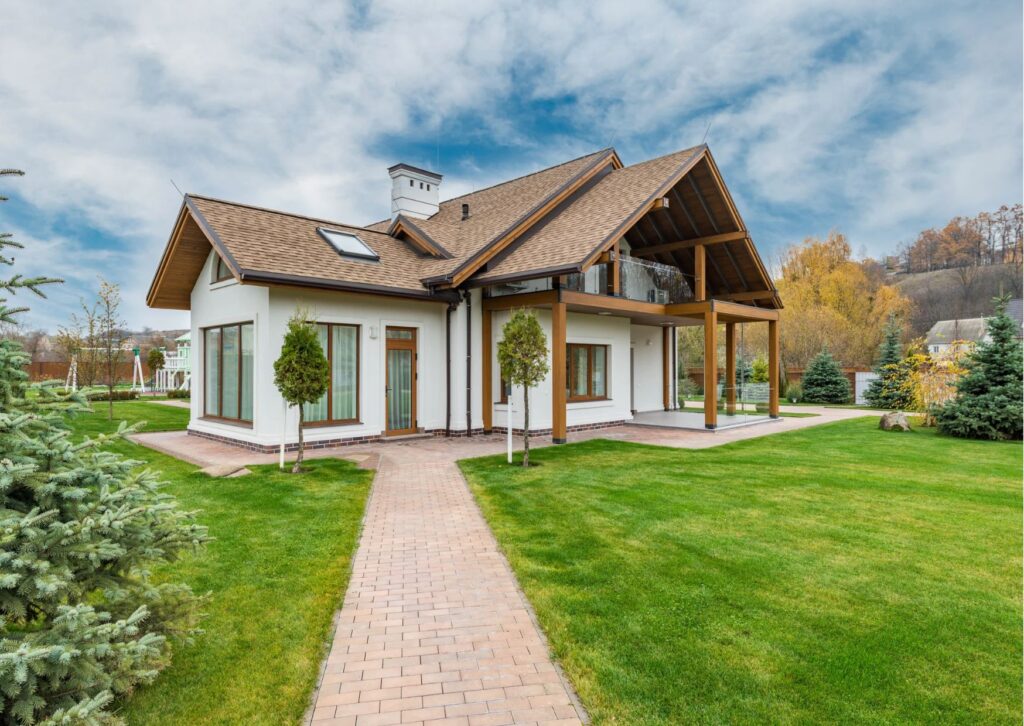“Un meublé de tourisme”
That beautiful cottage by the sea. A flat amongst the city rooftops. A castle surrounded by a moat. Or maybe the rambling farmhouse in the vineyards. Perhaps you bought your second home in France as an investment, perhaps it was love at first sight with out any thought of the practicalities. Now it has to pay its way.
You have come to the conclusion that you need to rent it out seasonally. All well and good, as there are around 800,000 holiday homes in France, all with a similar idea. Although it is one of the areas of business that is the least regulated, the rules are starting to change as some towns find themselves overwhelmed with AirB&B type accommodation that is killing off the heart of the town centres. Annecy for example, has now introduced a quota for holiday accommodation, going down from more than 2800 to only just 2200 places. Alongside this new hardening of rules, the town has also introduced new strict quotas of how many holiday homes per person are allowed, and even forcing owners to re-apply for their status every five years with the idea of reducing the number of holiday homes in the area even further. This is just an extreme example at the moment of what could hinder a good business venture, or just a way of paying off your mortgage and still enjoying your little “pied-à-terre” in France.
So what are the rules once you have made the decision to rent out your property, whether it is an apartment, bungalow or sprawling mansion in the countryside? You obviously can’t do this sort of activity under the radar. If you do, the penalties can be severe.
Personal experience
My husband and I have been in the holiday rental business for nearly 20 years, either renting out our farmhouse (or just recently a small holiday flat) or managing a holiday rental business for other owners in the Tarn-et-Garonne. Even though you may think that your property is unique, in the end the rules and the experiences are fairly similar.

Type of property
If you want to rent out your accommodation for holidays, it will of course have to be be fully furnished. In France they have a quite specific list as to what is obliged to be included, as it needs to be set up for someone to be able to live there comfortably for a period of time. Therefore all appropriate furniture, bedding, kitchen utensils, white goods and cooking stoves need to be included in the property. This is a legal requirement.
For the property to be classed as a holiday rental, it needs to satisfy three conditions. Firstly, the property must be for the sole use of the renter. This means that the space rented does not include your accommodation as well. If so, it could come into the “Bed and Breakfast” category but this can be investigated in a later article. The renter cannot use it as their home address, it is just a holiday location. Lastly, the renter can use the accommodation for a short period of time, whether that may be a day, a week, a month or more. The combined maximum amount of days they can stay in the accommodation however cannot be more than 90 days in one calendar year.
Remember that if your property is part of a co-location, there may be rules in your contract that could forbid the renting out of your property. Be very careful in reading all the clauses, as you could get fined.
Paperwork to be done with the Mairie
Regardless of what the grapevine says, yes you do have to declare your holiday accommodation to your local Mairie, as well as your swimming pool if you have one. The amount of times we were asked this question I cannot tell you. Yes, you do have to pay your “taxe de séjour” (tourist tax per guest). Yes, they do have planes that scan for undeclared swimming pools, and in the age of the internet it is easy to pick out the holiday homes that are brazenly advertised but not declared. So don’t get caught!
It is obligatory to declare your holiday rental with the proper authorities at your local Mairie. As mentioned before with the example of Annecy, there are some larger towns that have tightened their rules and regulations for setting up your home as tourist accommodation. Before doing lots of work on your house, I would advise you to check with your Mairie to see if it is still possible to offer tourist accommodation in your area.
The bigger towns force you to go through a change of usage of your property to a holiday rental before anything else, and obviously sometimes this can be refused. Larger towns (populations less than 200,000 or the communes of Hauts-de-Seine, Seine-Saint-Denis and Val-de-Marne) demand that you make the declaration first, and then apply for the change of use of the property. Smaller towns and villages tend to ask you just to make a declaration at the Mairie. Fines can be up to 50,000€, so it is not worth hiding your head in the sand and hoping no-one will find out. Ask at your Mairie, they will be only too happy to help.

Tax
It seems obvious, but sometimes people forget this. Running a holiday home in France is a business and has to be treated as such. You will need to declare your activity within 15 days of starting it to the proper authorities. The income you earn from this activity is subject to social contributions. Beyond a certain level, you will be subjected to paying French income tax. Once you have declared your activity with the Tax Office (“Hôtel des Impôts”), you will be given a SIRET number. If you are using an internet company to market and rent out your home, the company is obliged each year in January to provide you with a financial document to present to the tax offices, recording the gross amount of transactions incurred the previous year. Depending on where you’re based and how much you earn from this activity, you may find you will need to also pay a small fee for the “cotisation foncière des entreprises”, another charge for small businesses. An accountant can take you through all the necessary paperwork. You may even be able to find one that is bilingual through references from local people.
Insurance
You would obviously have taken out house insurance for your property, but you really have to chat to your insurer to put on added liability cover for guests. If you don’t, and guests have an accident, you and your property (especially your pool) will not be covered. It might sound patronising but if you are concerned about your property and renters, ensure that there are no valuables in the property, regardless how “beautiful” or “stylish” they are. This is a business, not a home. Get out all the personal items and valuable objects that can get damaged. Remember, your clients are people who are there for a good time and won’t care if the Ming vase is priceless or not. What happens if little Johnny breaks it or the dog runs off with it?
This is a prime example of why you must have some sort of damage deposit to cover these “accidents”. They do happen, regardless of how careful guests are. Unfortunately though, time and time again, owners forgot or didn’t have damage deposits in place. One example we had was an owner had friends over and decided that there was no need for a contract or a damage deposit. Unfortunately after a night of partying the red wine ended up on the immense cream carpet and there was no recourse that could be taken.

Tracking form for the Police
Unfortunately we live in a time where the police need to know who is coming into their district, and for how long. Anyone who is in the tourism sector and greets guests must now fill out the tracking form for police. This includes personal details such as their name, age, nationality, address, contact details and dates of stay. This can all be included in your rental contract, correspondence or include a clause that it needs to be filled in before setting foot into the property. You must keep this information for 6 months, as you can be asked for it within this time period.
Professional or non-professional renter
This becomes interesting for some people as, if you get classed as a small self-employed business compared to a professional renting company, your tax implications and the rules and regulations you would have to comply with vastly change. So how do you know whether you will be classed as a non-professional renter? You would qualify under just one of two options. Firstly, if your income for this activity was under 23,000€. Or secondly, the total receipts for this activity were less than the total amount of your other global revenues. If you are considered a non-professional renter, you will pay much reduced social charges on this activity. However you will still have to submit your earnings each year in your tax returns in France.
“Grading” of your property
This is not obligatory and we found that for the majority of the country houses we managed, including our own, were never classed with a one, two or even five-star rating. In fact in all the years of renting there was only ever one house that decided to have their holiday accommodation graded by the Office de Tourisme. In the case of a holiday home in the countryside with a pool, the lack of a classification or grading didn’t seem to affect their rentals. Clever pricing, “added extras” and location seemed more of a priority. Repeat bookings were also key, and this correlated more to the state of the beds, the cleanliness of the property, the state of the pool and also the personal help on hand, particularly for nervous travellers or people who don’t speak much French. The grading system of your holiday home however can give you several advantages if you are living full-time in France (in a separate home), such as not having to pay your housing or property tax in certain areas which are classified as “rural revitalisation zones”. It also reduces the amount of tourist tax you have to pay per person per night.
The Tourist Office of your village or town will be able to advise your further, and it will be they who can organise someone to come in and grade your property. Before that happens you might want to flick through what is needed to be a one-star or three-star property, whatever you are aiming for. That way you can assess what work needs to be done. For the first time ever, we decided to get our holiday flat in a tourist village graded. It was an experience, and we didn’t realise how regulated the activity is. We originally thought it would get two stars, but in fact we managed to get three. A very thorough service. On completion, you are presented with a report and the marking grid. The certificate is valid for 5 years but can be contested within 15 days if you feel it was not an accurate indication of what you have to offer. If you do agree with the decision, you are obliged to post up the grade in full view somewhere within the property. Obviously if the holiday home is not up-kept to the standard graded to it, it can be wiped off the tourist board classification system and you would have to go through the whole process again. Not only that, but if the renter finds fault with the property where the marketing advert does not conform to the reality, you could be taken to court for fraud.

Marketing
You have set up your holiday rental, declared it to the relevant authorities and have decided to get it graded. You are now ready to market it. Some people, particularly in the internet age decide to do this themselves by creating a website, having some professional-looking photos done and a good write-up. Rental seasons can be anything from 6 weeks to 9 months depending on what part of France you are based in. In our region, generally the properties were rented out for the summer holidays, perhaps a few weeks extra on either end but not more. Part of the problem was the cost of heating. Yes, even in the south of France it gets cold. Once you get to the end of September, the nights become chilly and your renters start putting radiators on. If you think about the large stone-built farmhouses that are on offer, heating costs mount up pretty quickly. If you get demand on the shoulder weeks of your season, it only takes a few cold calculating decisions before you quickly realise that financially it’s not a sound decision. Our best season was 16 weeks with self-advertising and the help of a rental company, however even that took a toll on family life.
There are a wealth of rental companies out there to help you advertise your property. All have a slightly different way of operating and it is best to do your research before tying yourself in with one that might in the long run not work the way you envisage. The commissions they charge can be as high as 20%, and sometimes bookings cannot be refused by you.
Contracts
Contracts for holiday rentals can be found all over the internet, and are an absolute must if you are thinking of renting out your home to strangers. You need to ensure that all relevant parties sign it and that one copy is kept by the renter. In this contract, not only the specific details of the property and the personal details of the renter and the owner are stated, but also this is the place were you can state the property rules and regulations.
It is the time to decide if you will include the cost of utilities in your rental price or have them charged for separately. They will have to be clearly stated in the contract along with their cost per unit, and arrangements made to read the relevant meters before and after the stay, and thus calculate the added cost at the end of the holiday. House checks for damage will need to be done before the next renter comes in, to assess if any money needs to be taken out of the damage deposit for repairs. It’s obligatory to provide supporting evidence if money is kept from the damage deposit, which is why a house check before and after a stay with the renter on hand is perhaps advisable.
With a signed contract between you and the renter, you are able to charge a deposit for the holiday, and then the remaining balance perhaps eight weeks before arrival. If they cancel at the last minute, you are within your rights to charge for the full holiday if these conditions have been clearly stated. The owner would have to reimburse the renter if their contract is cancelled by the owners and not only that but they could have to compensate them if the cancellation is late in the day in high-season. This legal document is priceless for both the owner and the renter.

Pools
(written by hubbie, a recently ‘retired’ pool technician in France with 19 years of experience of maintaining pools and running a pool business)
Swimming pools obviously add to the marketability of a property and we have found it would get considerably more “hits”, particularly in the summer compared to others. Not only that but those properties tended to get booked out much quicker and have longer seasons. Even more so if they had a heated pool which prolongs the season at each end – though this will add 5,000 Euros to the cost of the pool, and will eat electricity.
Some words of caution though.
If you intend/hope to share your pool with guests, you would legally have to describe it as a “shared pool”, and in most cases, that will mean far fewer guests (or a far lower rental price). If you want top dollar for the season, you will have to accept that the pool is exclusively theirs, and not yours.
Pools need regular maintenance from someone who has had experience. You can very get a green pool (especially if the season is a very hot one) and unfortunately this can quickly leave your property having a poor review despite everything else being perfect. It can be the make-or-break for a holiday for most guests. Pools need checking about once every five days. This involves checking/maintaining the chemical levels, cleaning the filter, emptying skimmer baskets of leaves, hoovering the pool (or running the robot), brushing the sides of the basin, checking the water level… all sorts of things. Please do not fall into the trap of thinking “it’s a salt pool with a robot, it’ll look after itself.” Because it won’t. Frequent visits are absolutely essential.
The cost of chemicals, electricity for the pool pump, and a weekly visit from a pool technician will come to around 60-80 Euros a week during the season when it is up and running, for a standard 10×5 pool. You should add another 50 Euros per week if your pool is heated with a heat-pump.
On a safety issue, you must ensure that your pool conforms to French safety law, not just because the fines are up to 45,000€ and two years’ imprisonment but also because you don’t want a child to drown on your property. It happens too many times every year. Don’t let it be you.
These laws insist that you either need a special cover which can take the weight of a child, or a fence of a very specific height and construction (not chain-link) all around the pool, or an alarm which detects sudden ripples in the water. The first two cost thousands of pounds, the first can take away the spontaneity of a swim (and has to be put back on afterwards, and fastened down), the second can look rather ugly and blocks the view, and the third (though the massively cheaper option) will inform you that a drowning has just occurred. Past tense. None of these are brilliant in all circumstances, but you are legally obliged to have one of them. The punishments are (rightfully) massive if you don’t, and these things are checked.
In short, having a pool is fantastic for guests (and you), and earns you a lot more money from your property. But it is a lot of work and expense to maintain.

Property management
Lastly, I come to the question of that if you have this wonderful holiday home that you are thinking of renting out, who is going to do all the work of getting your property ready? If you live nearby then the most cost-efficient option is to do it yourself. We always found guests tended to look after the holiday home more if they were able to put a face to the owner. You could alternatively use a reputable holiday management company that can sort out your house, garden, pool and even bookings for you. (Remember to check their references.) This is particularly relevant if you are living too far away or even abroad. They will obviously take a fee, and it would be up to you to decide how to arrange the upkeep of your home by operating with a piecemeal approach (employ separate people for certain tasks) or simply use a company that takes over everything. Whoever you ultimately employ remember to check references. Do they have the right documents and the correct SIRET number to work on your property? (If they have no SIRET, they are neither registered nor insured.) Are they insured? Insist on seeing those two very important documents. Are they qualified? Do they have experience? Will they be doing the work or will they get other people to come into your house or onto your property that you haven’t checked? Remind yourself about how property managers can work in France. For example did you know it is illegal for them to rent out the property for you, take the pre-payment themselves, and send you the profits keeping their cut? Just because you are on holiday, or in a different country, doesn’t mean you should forget all these essential criteria.
Worth it?
Is it worth it? After all the rules and reglementation you might be excused in thinking “is it really all worth all the hassle?” Well the saying goes “money talks” and creating a business out of something that might be costing you not only mortgage payments but also maintenance, makes good business sense. Having the property managed and occupied can provide peace of mind. The alternative would be still having to pay the bills, but having no income from an effectively empty property.
MidLife Crisis In France
COPYRIGHT Ⓒ 2023












